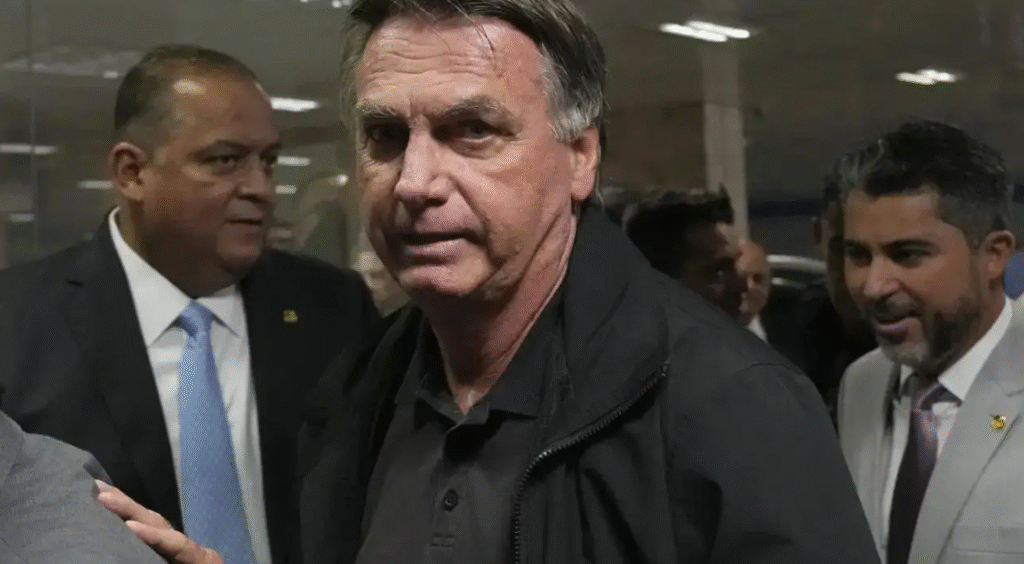Brazil’s Supreme Court ordered former president Jair Bolsonaro to go under house arrest at his home in Brasília. Justice Alexandre de Moraes, who oversees Bolsonaro’s ongoing trial, took this step after findings that Bolsonaro repeatedly ignored court-imposed restrictions especially a ban on social media and public messaging.
Why the Court Took This Step
The court cited a clear violation: Bolsonaro spoke at a public protest in Rio de Janeiro through a speakerphone connection with his son. The speech was then posted to social media by his son and allies actions that the court saw as circumventing his social media ban.

Justice de Moraes declared that Bolsonaro knowingly disrespected legally binding measures and sought to influence public opinion outside court approval.
Previously, the court gave him a warning and refrained from arresting him for an initial breach. But after repeated violations, Moraes said the measures were no longer optional and escalated to house arrest.
Alleged Coup Plot Behind Trial
Bolsonaro is on trial for allegedly organizing a coup attempt after losing Brazil’s 2022 election. Prosecutors allege he and close allies some ex-military officials planned to block the transfer of power and even discussed assassinations of current President Luiz Inácio Lula da Silva and Justice de Moraes. His party and sons are also under investigation.

He also faces charges of leading a criminal organization aimed at destabilizing Brazilian democracy. If convicted, Bolsonaro could face decades in prison. He is already legally banned from holding public office until 2030.
Ripple Effects: Protests and U.S. Response
Thousands of Bolsonaro supporters protested across Brazilian cities shortly after the house arrest was announced. Many waved U.S. flags a sign of solidarity with American political support. Bolsonaro even addressed a crowd by phone call during one protest in Rio.
U.S. President Donald Trump, a vocal Bolsonaro ally, denounced the arrest. He imposed 50% tariffs on Brazilian exports and sanctioned Justice Moraes under the Magnitsky Act, calling the trial a witch hunt. The U.S. State Department also criticized Moraes, arguing he silenced a political opponent under the guise of judicial order.
Brazil’s election in October 2026 looms large. Bolsonaro’s arrest and the international drama around it could shape the political landscape. Analysts say his supporters might rally in protest, while opponents use the case to reinforce the strength of Brazil’s judicial system.


 US Treasury sanctions Brazilian judge overseeing Bolsonaro’s trial
US Treasury sanctions Brazilian judge overseeing Bolsonaro’s trial  US-Brazil relations reach new low as spat intensifies
US-Brazil relations reach new low as spat intensifies  Trump Threatens Brazil with 50% Tariff Over Bolsonaro Trial
Trump Threatens Brazil with 50% Tariff Over Bolsonaro Trial  Why is Brazil Cutting Amazon Forest?
Why is Brazil Cutting Amazon Forest?